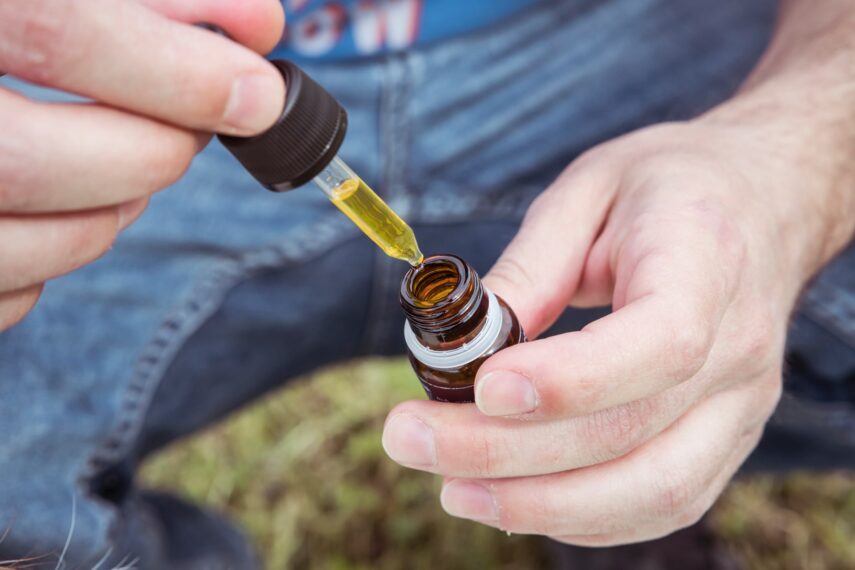Tetrahydrocannabinol (THC) is well-known as the chemical compound in marijuana that makes you feel high. It causes most psychoactive properties that alter your brain’s thinking, memory, sense of pleasure, time, coordination, and perception. This is why cannabis has been illegal for so long, up until the last few decades, as more states began legalizing it for medical and recreational use. Many of these states, such as Illinois, don’t require any form of medical ID or proof of registry with the medical program to purchase cannabis. You simply need a state-issued ID proving that you are 21 years of age or older. Nonetheless, in these states, it’s still recommended to obtain a medical marijuana card for the added benefits of more affordable prices and a selection of more products. You can head over to Green Health Docs to help you obtain a medical marijuana card in Illinois.
There has been a more significant movement to legalize marijuana, and by extension THC, because it offers many medical benefits that may improve your health and overall well-being. And so in this article, we’ll be discussing the 10 of the most well-known examples.
1. Relieves Pain

The most commonly known benefit of THC is that it can relieve pain. It can be chronic conditions such as arthritis or fibromyalgia, or from issues like cancer and symptoms caused by radiation treatment. One of the benefits of using THC for pain is that it is not addictive, and has very few side effects. With the rising issue of opioid addiction, more doctors and states are seeking less risky alternatives when the situation allows for it.
2. Reduces Nausea and Vomiting
The other reason why medical marijuana is often prescribed for cancer patients is to help them deal with the nausea and vomiting that comes from their radiation treatments. Chemotherapy can take a significant toll on the body, and often causes sickness and vomiting in patients who have to go through it. THC-O oil from sites like thehempdoctor.com may not only help reduce the pain you feel from the cancer and treatments, but also reduce the nausea and vomiting.
3. Protects Brain Cells
All cannabinoids are known to have neuroprotective properties. That means that THC may help protect the health of your brain cells, which can help improve the health of your brain and overall health in numerous ways. First, it may help prevent degenerative brain disorders such as dementia and Alzheimer’s, or slow down the progression of such conditions. It may also help maintain or improve your memory, focus, coordination, and more.
4. Improves Sleep

THC and CBD can both be used to help treat people who have sleep disorders such as insomnia. The THC interacts with the endocannabinoid system (ECS) in your body that regulates numerous bodily functions, such as your sleep-wake cycle and your body’s internal clock. Taking THC oil an hour or so before bedtime can help you fall asleep easier, and stay asleep through the night so you get a more restful sleep without interruptions.
5. May Improve Mental Health
There are some indications that THC may also help improve your mental health by reducing issues like anxiety, stress and depression. This includes more severe mental health disorders like post traumatic stress disorder (PTSD). It achieves this by reducing the level of chemicals in your brain connected to stress and depression, while improving the production of chemicals associated with positive feelings, like serotonin.
However, it is worth noting that the psychoactive elements of THC have also been found to increase feelings of anxiety in some people, though not everyone. It may depend on your personal reaction to it, or what specific strain of marijuana the THC oil comes from.
6. Reduces Inflammation
Another benefit that has numerous applications is the ability of THC to reduce inflammation. This is one of the indirect ways that THC may help reduce pain, which can be caused or exacerbated by inflammation in your joints, muscles, or organs. Inflammation is also a contributing factor in numerous other health conditions, including skin conditions like acne or eczema, and digestive conditions like irritable bowel syndrome (IBS) and Crohn’s disease.
7. May Help Fight Tumors

One of the more interesting potential applications of cannabinoids like THC is their ability to actively fight the growth of tumors. While there has yet to be full clinical trials performed on human subjects, various test tube and animal-based trials have found THC is able to kill cancer cells in tumors, such as breast cancer cells. It seems to do this by blocking the tumor from forming blood vessels. This has very exciting potential for future cancer treatments, and is yet another reason why medical marijuana is increasingly supplied to cancer patients.
8. Treat Epilepsy
The only FDA approved prescription medication that uses THC is called Epidiolex, and it is used to treat specific varieties of epilepsy. Epilepsy is a seizure disorder, and it is a chronic condition that has no cure. There are only treatments that attempt to control the condition so the seizures you experience are less frequent, less severe, or both.
However, there are several varieties of epilepsy, which results in not every treatment not consistently working for every patient. There are some severe versions of it, such as Lennox-Gastaut syndrome and Dravet syndrome, which have been traditionally resistant to treatments. However, trials found that Epidiolex, which combines THC and CBD, was able to help reduce seizure activity and severity in a large portion of test subjects.
9. Treats Multiple Sclerosis
Multiple sclerosis (MS) is a disease that slowly attacks your nervous system, including your brain and spine. There is no cure, and over time the condition worsens as your nervous system deteriorates. It causes stiffness, uncontrollable muscle spasms, and eventually death.
Sativex is another prescription medication that uses a combination of CBD and THC, and it is used in an oral spray that has been approved in several countries. It has been found to improve the levels of pain, movement, muscle spasms, sleep quality, and overall quality of life in people with MS.
10. Improves Appetite

The final common benefit of THC is its ability to improve your appetite. There are numerous reasons why someone may not feel like they are hungry. It can be an eating disorder, digestive condition, disease like cancer, or side effects from a medication you take.
It seems to achieve this through interacting with the ECS, which also regulates your body’s natural clock and tells you when you should be hungry around your normal meal times. This can be a big help for people who have a poor appetite but need to keep eating to maintain their health, weight, and nutrients.
If you are dealing with any of the above health concerns, you can look into THC as a supplement to help improve your quality of life. You will need to live in a state or country where THC and marijuana have been legalized, at least for medical use. If the latter is true, you will need to speak to your doctor about what you have to do to get a medical use license, so you can legally purchase and consume THC oil.







